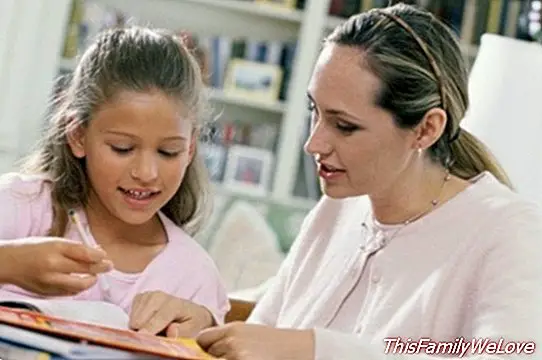How to motivate children to learn

When entering a classroom of Early Childhood Education, it is easily perceived that in the first years of their school education, boys and girls learn through a variety of activities in which games abound. These games are the key to how to motivate children to learn, since what prevails is to have fun, socialize and learn without realizing it.
When the three-year-old schoolchildren begin to shape their scribbles, in an attempt to "write" something, the most normal thing is that the teacher does not correct them, does not tell them what is wrong, or that they do not put what they wanted there. put. Even, it is very likely to praise them.
What is good and what is wrong in learning suffers from this stage a process of transformation, of construction, in which both the perceptions of the students about the results of their efforts are changing, as well as the type of information that the teachers and parents give back to them and parental involvement.
Thus, during Infant Education and the First Cycle of Primary, what prevails is that the student is socialized, enjoys and integrates. The first curricular demands, in the Second Cycle of Primary, will be the domain of reading and writing, and then the students go from enjoying to having to do. Also, they have to do with a minimum of correction. At the end of the compulsory education system, due to the competitiveness of access to university studies, it is no longer enough to do things well, but rather to do them better than anyone else and, therefore, the techniques on how to motivate students acquire vital importance. children to learn.
Keys to motivate children to learn
The perception of the result by the students, with clear effects on their motivation, will depend on the information that the reference adults will give about this result. These are the points that we must take into account when providing students and children with a feedback realistic about their results and, therefore, maintain their motivation to learn:
- Promote the metacognition process, that is, the ability to reflect on the way of learning, the style of each one and the consequences of all this on learning and results. The product of this reflection should be the adoption of effective strategies to solve problems, instead of the approach by "trial and error", which eliminates the student's perception of lack of control, "pure luck" and increases their self-esteem.
- Communication of correct and coherent expectations. We must take care of the body language so that it does not contradict the verbal language, and try to describe the results more than just praise or criticism.
- Keep in mind that repeated criticism Without any guidance they can lead to the "Pygmalion effect", that is: the student will behave as he thinks he is expected, since adults think he has no capacity, he will be demotivated and he will not want to show what he is capable of.
- Avoid emitting praise or praise without further ado. This can have counterproductive effects: in some cases it is enough for a child to receive a sign of approval from the teacher or his parents, so that he or she stops in his activity or produces a disruptive or provocative behavior. It is more effective to tell a student that he is doing his work correctly and to indicate his progress by pointing out what the praise is based on (the objective evidence on which the affirmation is based) as a reward for his effort, which has a positive effect on his motivation intrinsic (the one that comes from inside the student).
- Work with students or sons and daughters the correct attributions and beliefs, that is, to make them see the real value of success (as an occasion to know and as steps passed towards a goal instead of how the person triumphs or an indicator of their intelligence) and failure (as solvable failures instead of uselessness); and attribute successes or failures to objective causes, usually effort and dedication.
- Adjust the type of tasks and challenges that are proposed to the students for their learning to their real capacity. If they are out of their capacity, they will produce frustration and demotivation, if they are too easy or do not constitute a challenge, they will demotivate and bore you. Thus, it is very important that it is adapted.
Ana Barrantes. Director of Neuropsychology and Learning.
It may interest you:
- Motivation guide for children with high abilities
- Children's behavior problems
- The value of effort in early childhood education
- The value of effort, how to motivate children




